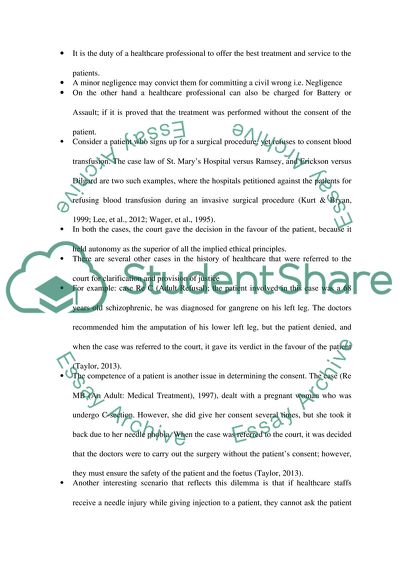Cite this document
(Presentation about Treatment without Consent Essay, n.d.)
Presentation about Treatment without Consent Essay. https://studentshare.org/medical-science/1834853-principles-of-patient-consent
Presentation about Treatment without Consent Essay. https://studentshare.org/medical-science/1834853-principles-of-patient-consent
(Presentation about Treatment Without Consent Essay)
Presentation about Treatment Without Consent Essay. https://studentshare.org/medical-science/1834853-principles-of-patient-consent.
Presentation about Treatment Without Consent Essay. https://studentshare.org/medical-science/1834853-principles-of-patient-consent.
“Presentation about Treatment Without Consent Essay”. https://studentshare.org/medical-science/1834853-principles-of-patient-consent.


